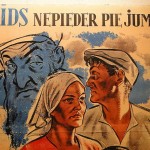Some friends and I were commenting on an article from Scary Mommy that came across our radar recently: “Why Mothers Stay up Late.” The irony is that the article is written by a man, so his tone is inevitably man-splainy to those of us who already know why we stay up late (to write our novels, read our books, do our dance practice, check our Facebook…have time ALONE). I noted the tone, but didn’t really mind it, because I saw that he was a fellow working things out, coming to the gradual realization that a woman is not reducible to her relationship with her family.
“Do you not like being a mother?” I asked with hesitation. I got a little nervous then and I couldn’t decide if I felt that way because she was such a wonderful mother and I didn’t want her to ever stop being that way, or if it was because there was some part of her that I clearly didn’t understand.
Mel gave me a half grin. “I love the kids, but this has nothing to do with being a mother. It has everything to do with just being alone. I don’t even want you around sometimes.”
My eyes opened for a bit, and she put her hand on my knee. “It’s not that I don’t love you, or the kids. It’s just that I need time to be me. To not have someone asking anything of me. To not have someone arguing over this or that. To not have someone asking for my attention. Right now, that’s more important than sleep. Does that make sense?” she asked.
Of course, this makes sense to us women. It’s common knowledge among us women. And most of us have had that conversation, with our husbands, at least once. I give the Scary Mommy author due credit for having had the conversation and actually processed it, remembered it, written it down, so his wife won’t need to have it with him again.
But still: “Do you not like being a mother?”
The question is irritating for women, because it is posed as a moral attack. Women are supposed to love being mothers, right? There’s a whole marketing industry devoted to showing us how to love being mothers, while keeping impeccable schedules, serving wholesome snacks, doing cutesy craft projects, and looking fabulous why we do it – mom-fabulous, though, which means thin and healthy but also respectable, in cheerful but muted tones, with respectably stylish haircuts. Mom-fabulous does not mean the stained cut-offs and tank tops I wear for gardening, nor the flannel and carhartts I wear for splitting wood, nor my bellydance outfits, nor my androgynous suits. Mom-fabulous is located in a beige-ish bourgeois zone where the accounts are always balanced, everyone laughs over salad, and there’s no PPD, no marital conflict, no mournful longing for the wild freedom of one’s youth. One likes being a mother. One LOVES being a mother.
This is identity politics creeping into parenting – into mothering, especially.
We’ve always allowed male vocation to transcend familial relationships. Women were not expected to do so, or even allowed to, in many cases. So, for a while, in reaction to this, there was a common feeling among feminists that women should shy away from thinking themselves in maternal terms at all. This, I think, was erroneous, though understandable, especially given the tendency to reduce women to objects of use, female bodies to receptacles to be entered by the male, occupied by the child. And we still need, I think, to emphasize fatherhood as a condition of responsibility for the male, not just in some essentialist “protector and provider” mode, but in terms of real bodily involvement in family life.
Now that there’s a greater awareness that being a mother is a personal act, an acceptable occupation even for a liberated feminist, nothing to be ashamed of, this means we’re supposed to be flourishing in it. We made a Choice. We must be happy with our Choice. And if we dare to complain about the doldrums of repeated housework, the inability to find free time to do the things we used to do, the way that diastesis recti makes it impossible ever to have proper abs again: well, we are reminded, we made a Choice. The liberal bootstraps mentality here is that if a woman Chose to Be a Mother, she now has to live with the consequences of that choice, and if she doesn’t love every minute of it, she’s doing a bad job, and being annoyingly whiny to boot. And, in Catholic circles, it means we’re just kind of bad.
The problem with all this is that it puts the focus in the wrong place. The point of being a mother is not my own identity; it’s the well-being of my children. If I sit here loving being a mother, laughing over my salad, doing wholesome crafts in an impeccable home, the point of this is not the curated image of my Mothering; the point is that my children are well cared for, happy, learning, loving. And maybe they can be happy in a messy home. Maybe they can be happy if instead of doing crafts with them I tell them to go build a fort in the woods. Maybe, in fact, they’ll be happier if I don’t lay on them the anxiety of needing them to help me create my own identity.
If I prefer to identify primarily as a farmer and writer, not as a mother, this does not mean I am discounting my children. It means that I see them as more than “my children,” more than appendages to foster my identity, more than fashion accessories in the world of laughing at salad. I see them as humans, unique individuals with their own gifts and vocations. There will be a time, someday, when they will move away from me, want to do their own thing. If I need them close by to help identify myself as Mother, I do them a disservice. I certainly don’t expect them to reduce their identity to “Rebecca’s child.”
Now, the flip side to this is that to be a human individual is not to be an isolated entity floating through the vacuum of the nation-state, pursuing radical liberty. Being a human individual means being in relation, so no matter where they go and what they do, their relationship with me and with their father and with each other will always be part of who my children are. Relationship means responsibility, community, shared memories – good and bad. It may mean resentment, at times, and the need to forgive. It also has physical reality: my children’s flesh and bones are connected to mine; they bear my genes, which means any hereditary disease I acquire, they will also have to look out for – which makes me sad. I worry that they’ve inherited my rage or tendency to depression. I hope that they’ve inherited my ability always to find solace in books, and to love gardening.
Similarly, my Mothering is a physical reality. It’s not constituted by how I present myself. Whether I feel nurturing or not (and I usually don’t) – it’s still a fact that my body nurtured three other bodies, grew them, expanded with them, suffered, bloated, cramped, labored, tore, bled, and bore them slimy and shrieking into the world. I nursed them, even when I didn’t feel like it. They drew sustenance from my body, and my body is forever changed. The Mothering body is not receptive so much as expanding, producing, oozing life.
Adoptive parents will experience this differently, I realize. But an adoptive parent, or a woman unable to give birth vaginally, or breastfeed, still has a physical, active relationship with the child, which is not about personal curating of identity, or how one feels in a given moment, but real giving and communing. He or she gives of time and energy, even when exhausted. And a biological mother who has given a child up for adoption also has this physical reality, a mothering that is connected with loss, grieving, a loving sacrifice that the world often fails to respect or understand.
At this precise moment, what I really feel like doing is getting on a horse and going for a good canter across a big wide field, far from human civilization. Then I’d like to drink some coffee in a clean white solitary cabin, and sit alone and write. What I don’t feel like doing? Homeschooling. Teaching first grade math slays my soul, but I do it anyway, because I love my daughter, and want her to have the experience of intellectual freedom to explore that I had as a homeschooler. I also do not feel like doing laundry, or sweeping the floor, and though I feel like cooking, I probably don’t feel like cooking anything my family feels like eating (only my oldest appears to have inherited my adventurous approach to food).
Being a mother is not about what I like at this or that moment. It’s not about singular identity, but relation and responsibility. And being myself is not just about relation and responsibility to my family; it’s also about relation and responsibility to community, friends, the earth, the economy, the church – and it is also about being alone, both in the sense of existential loneliness, and in the sense of the “bliss of solitude” where we escape, briefly, from everything that is making demands on us. There’s a lot of talk in Catholic circles about the role of women as mothers, and it seems usually to function by tying mothering to essentialist qualities: women are patient, nurturing, etc. I’m not particularly patient, and I’m better at nurturing tomato plants than people, but that doesn’t make me less of a mother. And my mothering is also not the whole of who I am; the capacity for mothering is not the whole of who any woman is: that concept reduces childless women to less-than-complete women, or tries to skirt the issue by defining them as some sort of vague secondary mothers, as though they couldn’t be valued for anything else.
Do you not like being a mother?
Yes. Sometimes. Usually. But perhaps that question misses the point. It’s not whether I like being a mother that’s as important as whether I love my children.












